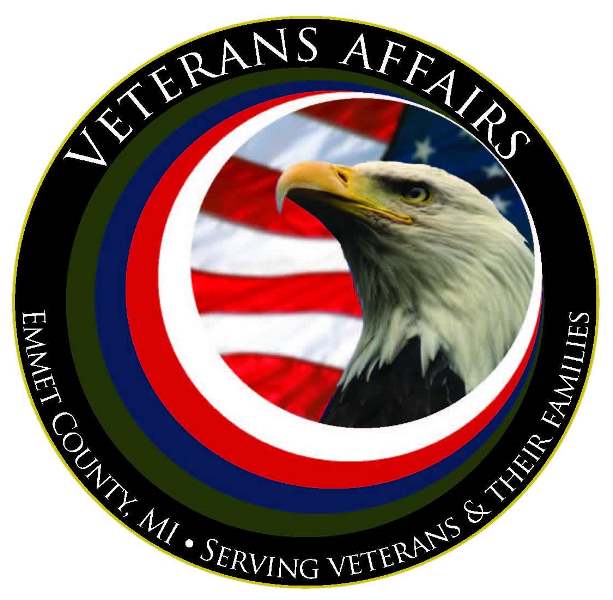
Web editor’s note: VA Director Jim Alton writes a monthly column providing information to area veterans and their families. To read past columns, click here.
Legislation to help veterans with PTSD through dog therapy passes House
The Veterans Dog Training Therapy Act, sponsored by Congressman Steve Stivers (R – OH) and Congressman Tim Walz (D – MN), passed the House of Representatives in February as part of a larger veterans’ health services bill.
This legislation would establish a therapeutic dog training and handling pilot program for veterans struggling with Post-traumatic Stress Disorder (PTSD).
“It is estimated that 22 current and former service members commit suicide each day in our country. This tragedy requires immediate action,” Stivers said. “We owe it to our service men and women who risk their lives for our freedoms to help them when they return home. I have personally met veterans whose lives have been dramatically improved through working with a service dog, and I am glad we are one step closer to giving more veterans this opportunity.”
The pilot program would be established at three to five V.A. facilities, as selected by the V.A. Secretary. These facilities would connect veterans to local therapeutic dog training organizations, which would be responsible for the dogs’ housing and care. Veterans would learn useful occupational skills while training the dogs, and after training, each dog would be provided to a disabled veteran – thereby enabling veterans to help other veterans. Once the program is started, it would be studied and considered for expansion to additional facilities.
This is nearly identical to the service dog training program conducted by the non-profit organization Warrior Canine Connection at several Department of Defense medical facilities and one V.A. Hospital location. Many veterans who have participated in the Warrior Canine Connection have seen significant improvements in both PTSD and Traumatic Brain Injury symptoms. Additionally, preliminary research from Kaiser Permanente has shown that veterans who have these service dogs show fewer symptoms of PTSD and depression, have better interpersonal relationships, a lowered risk of substance abuse and better overall mental health.
Here in Emmet County, we have a program that may be of assistance to any veteran who may want to just get their “feet wet” working with dogs. If you are interested or know of someone who might be, please call our office at (231) 348-1780.
VA budget proposed with increase for veterans’ benefits
In his FY 2017 budget, President Obama is proposing $182.3 billion for the Department of Veterans Affairs. The FY 2017 budget includes $78.7 billion in discretionary funding, largely for health care and $103.6 billion for mandatory benefit programs such as disability compensation and pensions. The $78.7 billion for discretionary spending is $3.6 billion (4.9 percent) above the 2016 enacted level. The president’s budget also provides for continued implementation of the Veterans Benefits Administration’s (VBA) Transformation Plan to systematically improve the quality and efficiency of claims processing. The budget also requests $1.6 billion for programs to prevent or reduce veteran homelessness.
House passes Wenstrup legislation to enhance veterans’ benefits
More than 30 provisions to improve veterans’ programs were included in legislation that passed the U.S. House of Representatives in February.
Sponsored by Congressman Brad Wenstrup, the Veterans Employment, Education and Healthcare Improvement Act, H.R. 3016, incorporated legislation from over a dozen legislators, with provisions ranging from improving maternity care in the Veterans Health Administration to streamlining G.I. Bill education benefits.
“As a veteran of the Iraq War, I understand the commitment we’ve made to those who serve and served,” Wenstrup said. “They have my commitment that I am working every day to ensure we maximize the value and effectiveness of our VA programs. We must maximize the effectiveness of our programs realign parts that may not be truly serving our veterans.”
Wenstrup pointed to one part of the legislation that closed an expensive loophole some private flight schools used to charge the VA well above market value and far more than federal law intended.
Important provisions in the legislation expand the Fry scholarship for survivors of service members killed since 9/11 and expand medical care for new mothers and newborns in the VA health system. The bill also improves claims processing and expands the VA’s work-study program for student veterans.
The work study program is indeed a success. My assistant, Rick Wiertalla, attended the work study program during my tenure as Veterans Affairs Director, and I hired him full-time seven years ago. This office would not be the same without him.
Highlighting area service organizations
Each month, I plan to feature one area service organization in our area. This month it is the American Legion Post No. 159 in Mackinaw City. The Post is looking for new members to join them this year by attending meetings and taking part in activities and volunteer opportunities. The meetings are held the second Monday of each month at 1 p.m.
The officers of this post include:
Commander: Paul Allers
1st Vice: Scott Wyzlic
2nd Vice: Tom Chastain
Sgt. at arms: Walter Pope
Secretary and Treasurer: Linda Maass
Service Officer: Scott Wyzlic
Here is a list of some of the things that the Mackinaw post supports with donations: Special Olympics; Water Warriors; high school scholarships; Boy Scouts; local families in need; Flint water crisis; Church of the Straits Food Bank; St. Clement Church in Pellston; toys for kids; Wounded Warriors; veterans’ home in Grand Rapids; FOP. In the past year, the post has donated over $18,000.
Jim Alton is the Director of the Veterans Affairs Department within Emmet County. Alton served in the United States Marine Corps (1955-62) and is retired from the Michigan State Police. Reach him or his assistant, Rick Wiertalla, at (231) 348-1780 or jalton@emmetcounty.org.




